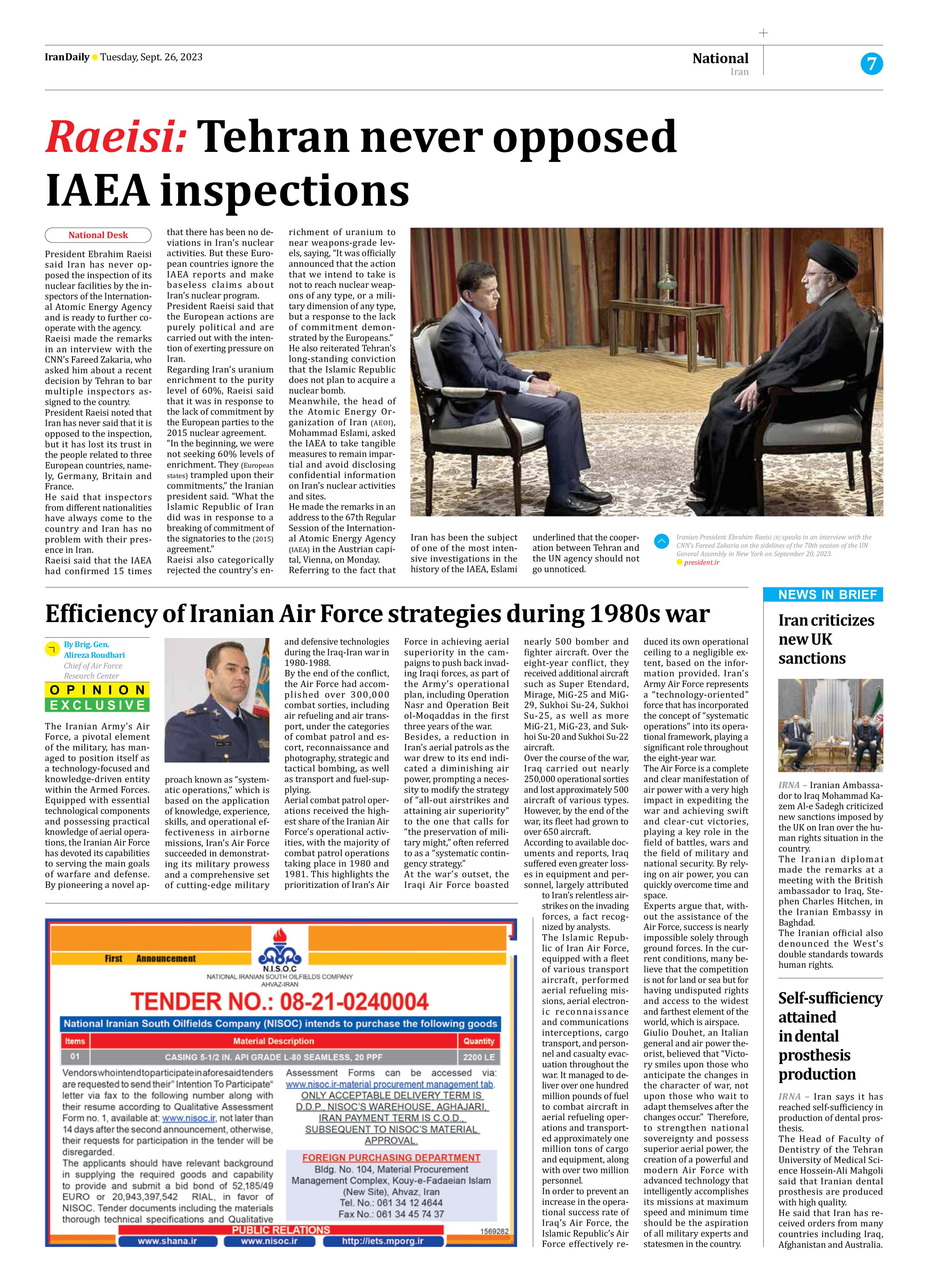
Raeisi: Tehran never opposed IAEA inspections
President Ebrahim Raeisi said Iran has never opposed the inspection of its nuclear facilities by the inspectors of the International Atomic Energy Agency and is ready to further cooperate with the agency.
Raeisi made the remarks in an interview with the CNN’s Fareed Zakaria, who asked him about a recent decision by Tehran to bar multiple inspectors assigned to the country.
President Raeisi noted that Iran has never said that it is opposed to the inspection, but it has lost its trust in the people related to three European countries, namely, Germany, Britain and France.
He said that inspectors from different nationalities have always come to the country and Iran has no problem with their presence in Iran.
Raeisi said that the IAEA had confirmed 15 times that there has been no deviations in Iran’s nuclear activities. But these European countries ignore the IAEA reports and make baseless claims about Iran’s nuclear program.
President Raeisi said that the European actions are purely political and are carried out with the intention of exerting pressure on Iran.
Regarding Iran’s uranium enrichment to the purity level of 60%, Raeisi said that it was in response to the lack of commitment by the European parties to the 2015 nuclear agreement.
“In the beginning, we were not seeking 60% levels of enrichment. They (European states) trampled upon their commitments,” the Iranian president said. “What the Islamic Republic of Iran did was in response to a breaking of commitment of the signatories to the (2015) agreement.”
Raeisi also categorically rejected the country’s enrichment of uranium to near weapons-grade levels, saying, “It was officially announced that the action that we intend to take is not to reach nuclear weapons of any type, or a military dimension of any type, but a response to the lack of commitment demonstrated by the Europeans.”
He also reiterated Tehran’s long-standing conviction that the Islamic Republic does not plan to acquire a nuclear bomb.
Meanwhile, the head of the Atomic Energy Organization of Iran (AEOI), Mohammad Eslami, asked the IAEA to take tangible measures to remain impartial and avoid disclosing confidential information on Iran’s nuclear activities and sites.
He made the remarks in an address to the 67th Regular Session of the International Atomic Energy Agency (IAEA) in the Austrian capital, Vienna, on Monday.
Referring to the fact that Iran has been the subject of one of the most intensive investigations in the history of the IAEA, Eslami underlined that the cooperation between Tehran and the UN agency should not go unnoticed.







